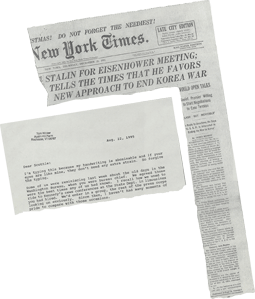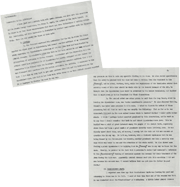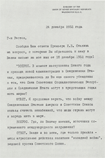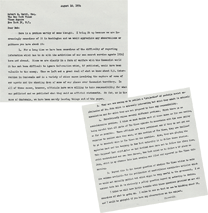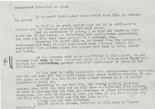
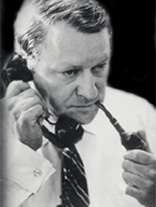

From "Scoop Artist" to Revolutionary Journalist
In 1945, after having been loaned by Sulzberger to the U.S. government as an information officer in the wartime London embassy, Reston was back in Washington covering the Dumbarton Oaks Conference, at which the shape of the future United Nations was being debated. Using a Chinese source who was actually an acquaintance of Iphigene Sulzberger, Reston scooped the world by reporting the positions of the great powers. For that reporting, he won his first Pulitzer Prize and established his reputation as, in his own phrase, a "scoop artist."
The U.S. government, however, was enraged by the leaks and sent the F.B.I. to investigate Reston. A few years later, almost on a whim, the young reporter cabled a set of questions to Joseph Stalin, who surprisingly cabled back the answers, which the Times printed. Reston now had to defend himself and the newspaper against charges that they were giving an undeserved forum to the Soviet dictator.
When Reston began his career, the style of American journalism was largely stenographic. In the name of "objectivity," analysis and personal observation were forbidden in news stories. The writing itself was pedestrian, in part a function of the often under- educated people who gravitated to the news busi- ness. Reston's intelligence and writing, and even his sense of fun, made him chafe against the strictures of the paper. He set about trying to change the rules, using the tactic of subtle subversion. For instance, while covering the whistle-stop presi- dential campaign of Tom Dewey, whom Reston did not much like, the young Times man described the jolting departure of the candidate's train from a small town station in this way: "And then the train pulled away with a little jerk." He was chastised by his editors, who let the double-entendre appear in the paper, but he was cheered by his colleagues, who were trying to achieve some breathing space for their own writing.
His assault on the conventions of the paper and of American journalism then became more direct. In 1953, using an extremely generous job offer from the rival Washington Post as a lever, his displaced the venerable Arthur Krock as Washington bureau chief of the Times. From that powerful position, he revolutionized the paper's coverage of Washington and assembled what remains today as the greatest collection of journalists ever to work under one bureau's roof, especially Russell Baker, Tony Lewis, Max Frankel, David Halberstam, and Tom Wicker.
Even as he became a columnist and new executive, Reston never lost his taste for the scoop. He demand- ed that his correspondents in the bureau to be on top of everything and even to be ahead of everything as much as possible. He insisted that the Times report even minor scoops, such as the forthcoming announcement of a minor ambassadorial appointment. His idea was to create the perception that the Times was all-knowing; he believed that the little scoop prepared the way for the big scoop.

University Archives, University of Illinois at Urbana-Champaign
